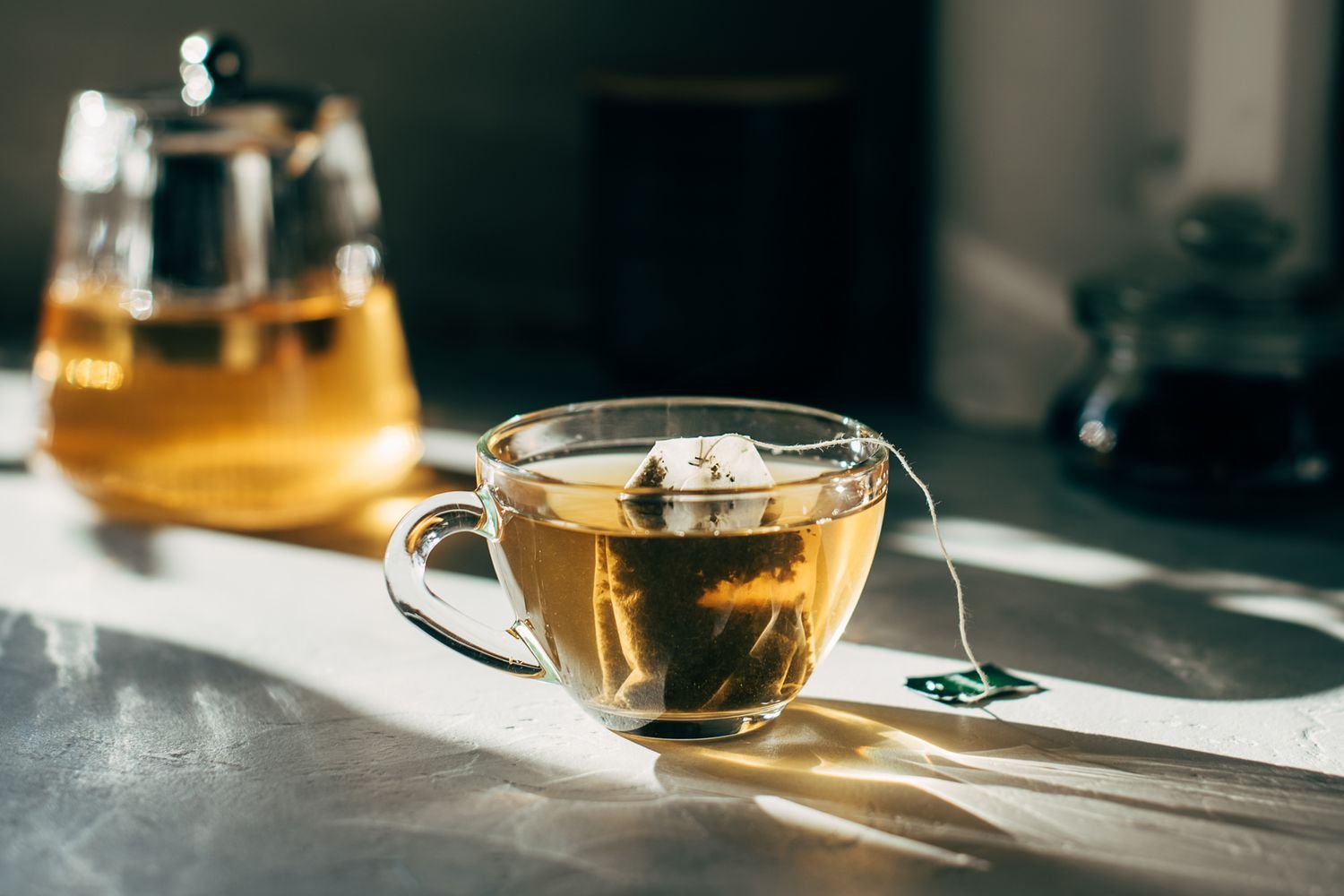If you have high cholesterol levels, you may want to make changes to your diet to keep your cholesterol levels in check. Many people have probably heard that increasing dietary fiber and decreasing saturated fat and added sugars can positively impact cholesterol levels. Still, you may not have heard of tea, a drink that may have beneficial effects. “Traditional teas contain antioxidants and have health benefits such as cancer prevention and cholesterol lowering,” says Lisa Andrews, MD, RD, LD, owner of Sound Bites Nutrition. says Mr. This makes it a healthy addition to most meals.
In this article, a nutritionist looks at the best teas to manage your cholesterol levels and how to enjoy them.
The best teas to lower cholesterol
Green tea may be one of the most beneficial teas in terms of its potential to lower cholesterol levels. Green tea, like other types of tea, is a source of various polyphenols. “Polyphenols in tea leaves contain antioxidants,” says Wan Na Chun, MPH, RD, CPT, owner of One Pot Wellness.
Some studies have found a link between green tea consumption and a slight reduction in LDL cholesterol. Other studies specifically looked at cholesterol levels in populations with other chronic conditions and found that adding green tea to the diet can be beneficial.
Specifically, a small 2023 study found that people with type 2 diabetes and nephropathy (kidney disease) had lower total cholesterol if they drank three cups of green tea a day. . Because the tea was consumed before meals and other elements of the diet were not controlled, it is difficult to know whether the tea alone affected cholesterol or whether other dietary changes had a positive effect on cholesterol. It’s impossible. Still, the results are encouraging regarding the potential impact of green tea on total cholesterol.
Similar results were found in a meta-analysis. This review found that drinking green tea can help significantly lower both total and LDL cholesterol (aka “bad” cholesterol). However, the study had limitations, such as not identifying the ideal amount of green tea to influence cholesterol levels.
Brooke Baird, RDN, owner of Simply Divine Nutrition, says the optimal dose of tea needed to lower cholesterol levels isn’t clearly defined. “It depends on individual factors like age, health, and overall diet and lifestyle,” Baird says. It’s also important to note that many studies investigating the effects of green tea on cholesterol have used green tea extracts and green tea blends as beverages. However, most studies have looked at catechin concentrations, the compounds believed to have the most significant impact on cholesterol levels.
Catechin is a flavonoid (a type of antioxidant) found in green tea. The most well-known catechin found in green tea is EGCG. “Epigallocatechin gallate (EGCG) has been thoroughly studied and shown to be highly effective in lowering cholesterol,” says MS, RD, LD, owner of Well Rooted Health & Nutrition. says Umo Callins, CSSD, CPT. The effects of green tea on lipid levels are thought to be pleiotropic. In addition to preventing oxidation of LDL, which can lead to plaque formation in the arteries, “green tea can significantly inhibit lipid absorption in the intestines, which studies have shown can be beneficial in lowering cholesterol.” “It’s been shown,” Chun said.
further research is needed
Drinking tea, especially green tea, may be effective in lowering cholesterol levels, but more research is needed.
“The FDA has not approved health claims for green tea drinks to reduce the risk of cardiovascular disease,” Chun says. It’s best to consult your doctor before using tea to manage high cholesterol, adds Chun.
Tea also contains caffeine, which can cause side effects if consumed in excess. “Excessive consumption of caffeinated tea can lead to side effects such as headaches, insomnia, irritability, dizziness, and anxiety,” says Chun. Excessive caffeine intake can also cause gastrointestinal symptoms in some cases. However, the total caffeine content of green tea is lower than other caffeinated beverages such as coffee. For reference, one cup of green tea contains about 30mg of caffeine, while one cup of traditional coffee contains 100mg.
Other teas, especially those made from herbs, can also have unexpected side effects. “Herbal teas may interfere with the action of some medications, including blood thinners, anti-inflammatories, anti-seizure medications, aspirin, blood pressure medications, and diabetes medications,” says Chun. It’s important to talk to your doctor about any medications, supplements, or teas you’re taking.
How to enjoy green tea safely
If you’re planning on adding green tea to your daily routine, it’s best to do so in a way that helps increase the overall healthiness of your diet. Avoid overly sugared green tea, as it can have a negative impact on your overall health. It’s also important to choose high-quality tea from a reputable company that tests for pesticides and other contaminants. Many companies will provide testing procedures on their website or provide a certificate of analysis upon request. You can also look for companies that comply with current Good Manufacturing Practices (cGMP) to ensure quality.
If you want a delicious and refreshing drink, try our Green Jasmine Mint Iced Tea with Lemon. If you want a warm and comforting drink, this Warm Honey Green Tea is sure to satisfy.
conclusion
Tea is a delicious and health-promoting drink that can be added to your diet. Choosing tea, especially green tea, may have a beneficial effect on total cholesterol. However, for maximum benefits, it’s best to avoid drinking tea with added sugar. “Tea is part of a healthy lifestyle, but consuming tea as part of a balanced diet and lifestyle is essential,” says Cullins. “If you have any concerns or underlying health conditions, please consult your health care professional.”

